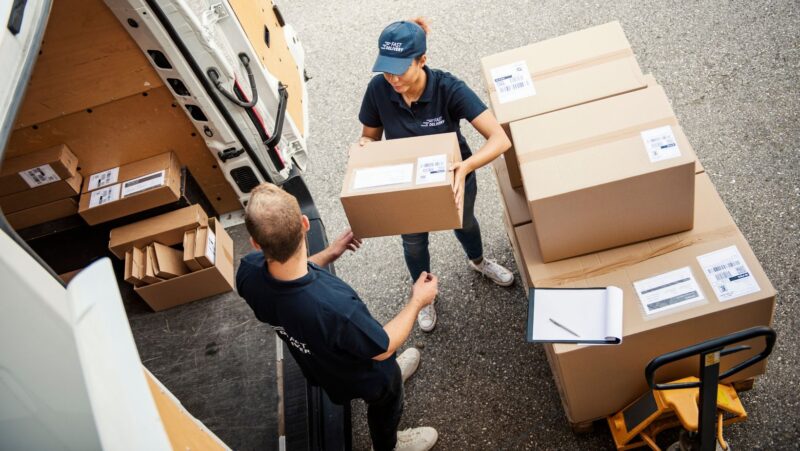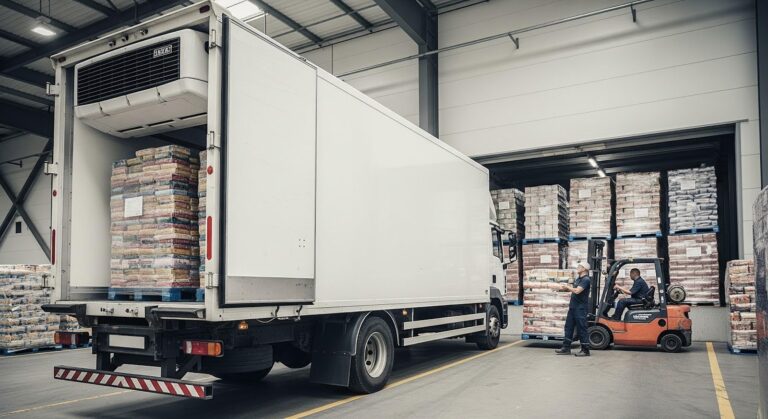The hospitality industry depends on reliable supply chains. Hotels, restaurants, and food chains rely on the availability of ingredients at the right time and in the right quantities, and any failure in this aspect may affect their menus and customer satisfaction. When choosing the appropriate provider of frozen deliveries in Cumbernauld, quality, reliability, and added value must be considered carefully. There are many providers out there, and knowing what to seek will mean that the businesses will get a service that can help them grow, not pose a threat.
Importance of Temperature Control
The most critical part of frozen logistics is maintaining the correct temperature between the supplier and the kitchen. Food safety and short shelf life can be influenced even by brief exposure to high temperatures. 
Delivery Reliability and Punctuality
Unreliable supply creates short-term problems for kitchens. Late slots mean that businesses have to make changes to menus at the last minute, which affects consistency and customer trust. By selecting a delivery partner with a proven record of punctuality, kitchens will be able to plan with confidence. Service-level agreements that guarantee delivery times provide additional assurance, enabling managers to schedule better and allocate staff resources.
Flexibility and Scalability
Hospitality businesses are usually faced with fluctuating demand, especially at peak seasons or special events. An effective frozen delivery service adapts to these changes and offers flexibility in the volume and frequency of orders. The ability of providers to scale up or down in a short time assists businesses in navigating the peak seasons without overstocking or running out of stock. This agility serves small independents and larger chains with fluctuating needs.
Range of Products Handled
Frozen deliveries do not necessarily contain the same types of goods. Restaurants may be required to maintain seafood, bakeries may need to preserve pastry products, and hotels may be dealing with a broad variety of products. By collaborating with a supplier that offers a wide range of frozen products, it will be possible to maintain consistency in menus. This minimises the work with several suppliers, simplifies the logistics of the process, and reduces administrative costs.
Traceability and Transparency
Trust is built by accountability across the supply chain. Suppliers with well-defined tracking mechanisms and records assist companies in ensuring that goods are stored in secure environments at any given time. Traceability also facilitates audits and regulatory checks and allows hospitality managers to prove due diligence with certainty. Openness in the operations is an element of professionalism, and it assists in establishing long-term associations.
Cost Considerations
Price remains a critical component, yet the cheapest provider is not necessarily the most efficient. Cost analysis involves analysing reliability, quality control and potential cost savings through waste reduction. A service that can be trusted not to spoil frozen goods is usually cheaper than a low-cost carrier that is likely to be delayed or mishandle goods. Pricing that is clear and itemised helps prevent surprise bills that may affect profit margins.
Customer Support and Communication
Efficient communication is as vital as logistics. Providers with responsive support teams make it easier to resolve issues quickly. Whether it’s adjusting orders, requesting emergency deliveries, or confirming arrival times, open communication helps to reduce stress for hospitality staff. A delivery partner that focuses on service as well as transport brings value to the business by becoming an extension of the company rather than a detached supplier.
Compliance with Regulations
Food safety legislation imposes strict requirements on the handling of frozen products. Providers must comply with these standards not only during transport, but also through training and operational processes. Working with a service that demonstrates compliance with certifications and documented procedures helps minimise risk and ensure that businesses stay in line with legal obligations.
Building a Reliable Partnership
The choice of the frozen delivery provider is not only a logistics issue, but it directly affects customer experiences, profitability, and long-term reputation. Good partnerships are characterised by temperature control, reliability, flexibility and good communication. 

